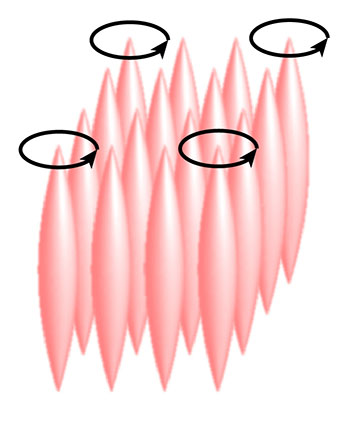Parametric instabilities in Bosonic Floquet systems

Engineering new, complex states of matter is an important area, impacting not only our fundamental understanding but also practical applications. One promising approach in quantum-coherent control is to rapidly oscillate some parameters in order to obtain a new effective system; this is the so-called Floquet engineering. Under the right conditions, new properties can emerge that are not present in the static system.
However, such oscillations carry energy which can be absorbed in the system, and one might generally expect heating. Energy absorption in interacting many-body systems, unlike in non-interacting systems, is an interesting open question with practical implications for quantum engineering.
Recently, theoretical work predicted that interacting Floquet systems can be inherently unstable in the case of Bosons, which would be visible as fast heating. In our experiment at JQI (see the paper or pre-print, we experimentally confirmed this mechanism and its manifestation as fast heating.
We also observed an unexpected super-fast heating, hinting at important effects beyond current theories.
We used a Bose-Einstein condensate loaded in a periodically-shaken 2D optical lattice, where the position of the lattice is the oscillating parameter. Several shake trajectories were tested, such as along one lattice axis, along the lattice diagonal and in circles; such driven cold atom systems have been proposed as a means to engineer interesting topological states. In the presence of the drive, the Bogoliubov spectrum can become unstable, whereby density modulations spontaneously grow and deplete the condensate. We studied the condensate lifetime to characterize this instability. Under most conditions, the observed heating follows the theoretical predictions, except for a narrow parameter range where we observe giant decay rates, which were not anticipated.
A simultaneous experiment by our colleagues from the group of Dr. Monika Aidelsburger at LMU/MPQ, Munich, confirms and complements our work. They study the case of a 1D lattice, and observe directly the growth of the unstable modes’ population to characterise the parametric unstability.
Future work will investigate the unexpected super-instability to better inform our theoretical understanding. Another research path is the possibility of suppressing the instability at high shake frequency when confining the system to limit the density of states (3D lattices).
This project has received funding from the European Union’s Horizon 2020 research and innovation programme under the Marie Skłodowska-Curie grant agreement No 701034.

